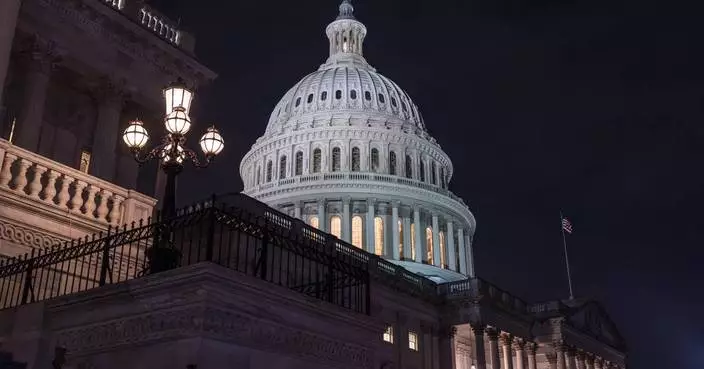Competing abortion measures to expand or limit abortion rights will be on the November ballot in Nebraska after election officials on Friday confirmed each side had turned in enough signatures.
The move makes Nebraska the first state to carry competing abortion amendments on the same ballot since the U.S. Supreme Court overturned Roe v. Wade in 2022, launching a national push to have voters decide.
Measures to protect access have already qualified to go before voters this year in Arizona, Colorado, Florida, Maryland, Missouri, Montana, Nevada and South Dakota. New York also has a ballot measure that proponents say would protect abortion rights, though there’s a dispute about its impact.
Still, there also have been legal fights across the country over whether to allow voters to decide these questions — and the exact words used on the ballots and explanatory material. Earlier this week, Arkansas' highest court upheld a decision to keep an abortion rights ballot initiative off the state’s November ballot, agreeing with election officials that the group behind the measure did not properly submit documentation regarding the signature gatherers it hired.
Most Republican-controlled states have passed abortion restrictions since the 2022 ruling, including 14 that ban abortion at every stage of pregnancy. Most Democratic-led states have laws or executive orders to protect access.
Voters in all seven states that have had abortion questions before voters since 2022 have sided with abortion rights supporters.
NEBRASKA
Nebraska's secretary of state announced Friday that the state's November ballot will include two competing abortion measures.
One of the initiatives, like measures on ballots elsewhere in the U.S., would enshrine in the state constitution the right to have an abortion until viability or later to protect the health of the pregnant woman.
The other measure would write into the constitution the current 12-week ban, with exceptions for rape, incest and to save the life of the pregnant woman.
MONTANA
Montana’s secretary of state has confirmed that an abortion question qualified for its ballot.
If it passes, it would amend the state constitution to bar the government from denying the right to abortion before viability — generally considered to be about 23 or 24 weeks’ gestational age — or when it is necessary to protect the life or health of the pregnant person.
Abortion is already legal until viability in the state under a 1999 Montana Supreme Court opinion.
ARIZONA
Voters in Arizona will decide in November whether to amend the state constitution to add the right to an abortion up to about 24 weeks into pregnancy. The Arizona secretary of state’s office said on Aug. 12 that it had certified enough signatures to put the measure on the ballot.
The state’s top court has weighed in on the details multiple times. It ruled that an informational pamphlet can refer to an embryo or fetus as an “unborn human being” even though that language isn’t in the amendment and won’t appear on the ballot itself.
The amendment would prevent Arizona from banning abortions before a fetus can survive outside the womb and would allow later abortions to protect a woman’s physical or mental health. Opponents say this goes too far and could lead to unlimited and unregulated abortions in Arizona. Supporters say it would keep abortion access free from political interference.
Abortion is currently legal for the first 15 weeks of pregnancy in Arizona.
COLORADO
Colorado’s top election official confirmed in May that a measure to enshrine abortion protections in the state constitution, along with requirements that Medicaid and private health insurers cover abortion, made the ballot for the fall election.
Amending the state constitution requires the support of 55% of voters.
Abortion is already legal at all stages of pregnancy in Colorado.
FLORIDA
The state Supreme Court ruled in April that a measure to legalize abortion until viability could go on the ballot despite a legal challenge from the state. Attorney General Ashley Moody had argued that there are differing views on the meaning of “viability” and that some key terms in the proposed measure are not properly defined.
To pass, the measure needs support from at least 60% of voters, a high threshold that supporters hope to reach after collecting nearly a million signatures on the petition to get it on the ballot.
Abortion is currently illegal in Florida after the first six weeks of pregnancy under a law that took effect May 1.
MARYLAND
Maryland voters also will be asked this year to enshrine the right to abortion in the state’s constitution. Abortion is already allowed in Maryland until viability.
MISSOURI
Missouri voters will decide whether to guarantee a right to abortion with a constitutional amendment that would reverse the state’s near-total ban.
The secretary of state’s office certified on Aug. 13 that an initiative petition received more than enough signatures from registered voters to qualify. It will need approval from a majority of voters to become enshrined in the state constitution.
The Missouri ballot measure would create a right to abortion until “there is a significant likelihood of the fetus’s sustained survival outside the uterus without the application of extraordinary medical measures.” The ballot measure would allow abortions after fetal viability if a health care professional determines it’s necessary to protect the life or physical or mental health of the pregnant woman.
NEVADA
The Nevada Secretary of State’s office announced in June that a ballot question to enshrine abortion rights in the state constitution met all the requirements to appear in front of voters in November.
This amendment would ensure abortion access for the first 24 weeks of pregnancy — or later to protect the health of the pregnant woman. To change the constitution, voters would need to approve it in 2024 and again in 2026.
Abortion up until viability is already allowed in Nevada under a law passed in 1990.
SOUTH DAKOTA
South Dakota voters will decide this fall on a constitutional amendment that would prevent any restrictions on abortion in the first trimester of pregnancy.
The measure would allow the state in the second trimester to “regulate the pregnant woman’s abortion decision and its effectuation only in ways that are reasonably related to the physical health of the pregnant woman.” Abortion could be prohibited in the third trimester, provided there are exceptions for the life and health of the woman.
Opponents have sued to try to take the initiative off the ballot or block results from being counted. A trial on the challenge could be held in September.
While not preserving a right to abortion by name, a reproductive rights question is on the ballot in New York.
The measure would bar unequal treatment based on “pregnancy outcomes” and “reproductive healthcare and autonomy,” along with sex, sexual orientation, gender identity, national origin and disability.
Proponents say it would protect abortion access, which is currently allowed in New York until fetal viability. Democrats sued to have the word “abortion” added to a description of the ballot measure given to voters, but a judge on Friday declined to do so, saying that it isn’t clear yet how the amendment, if passed, will be interpreted by the courts.
The Board of Elections must certify what’s on the ballot by Sept. 11.
There have been twists and turns to get the question before voters. It was on the ballot, then removed in May by a judge who found lawmakers missed a procedural step when they put it there. An appeals court reinstated it in June.

FILE - Montana Secretary of State Christi Jacobsen attends the summer conference of the National Association of Secretaries of State in Baton Rouge, La., July 8, 2022. (AP Photo/Matthew Hinton, File)
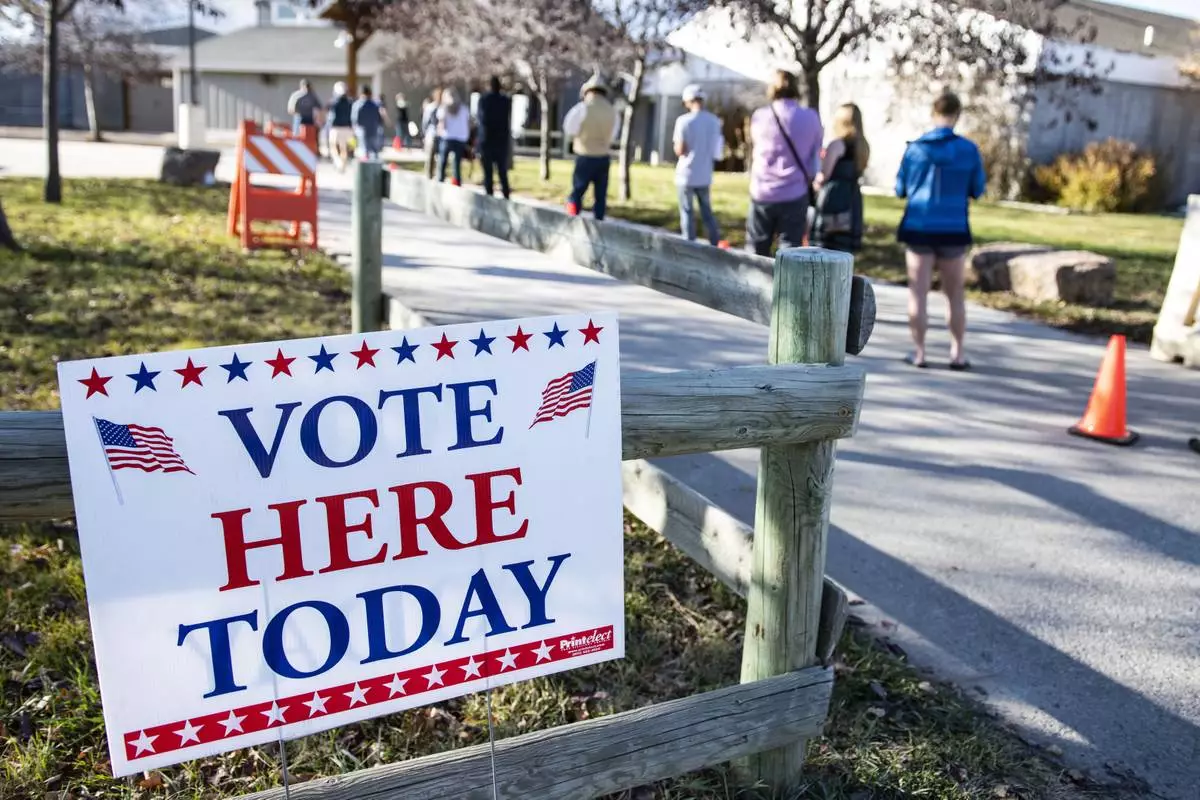
FILE - Patrons of the Gallatin County Fairgrounds wait in line to cast their ballots in Bozeman, Mont., Nov. 3, 2020. (AP Photo/Tommy Martino, File)
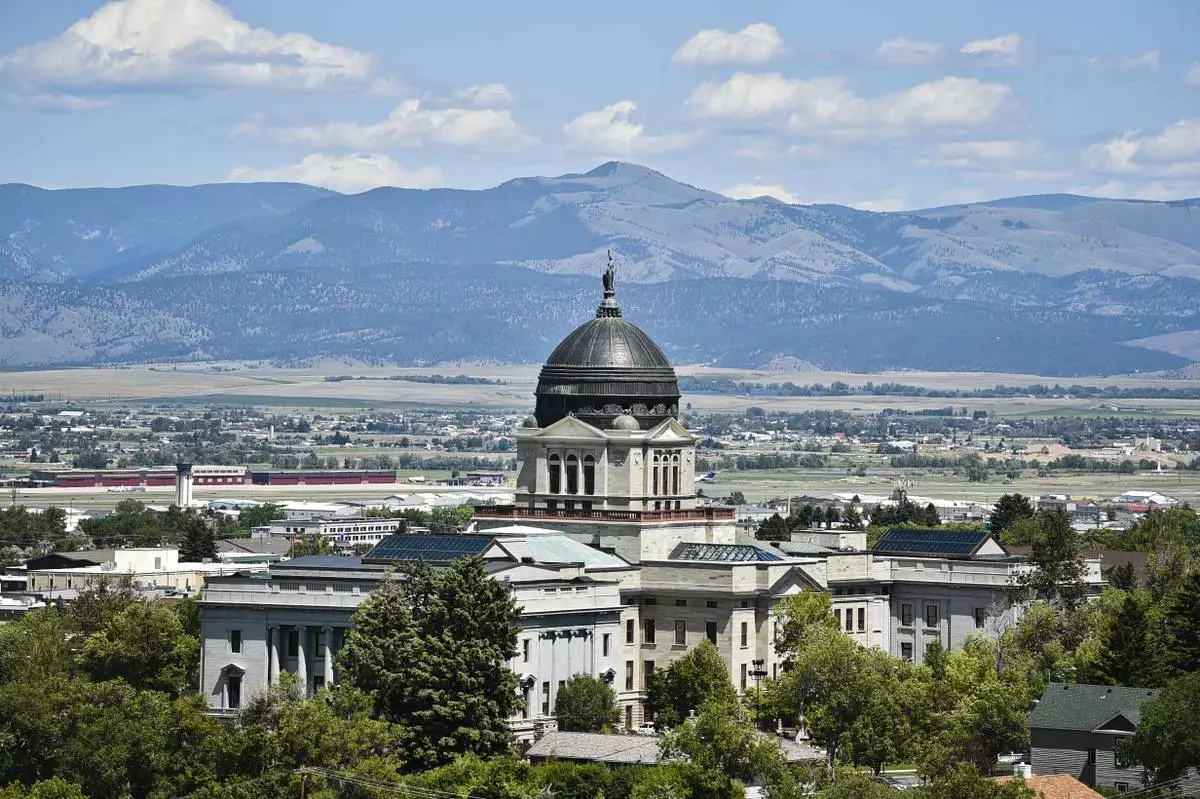
FILE - The Montana State Capitol is shown on July 13, 2020, in Helena, Mont. (Thom Bridge/Independent Record via AP, File)
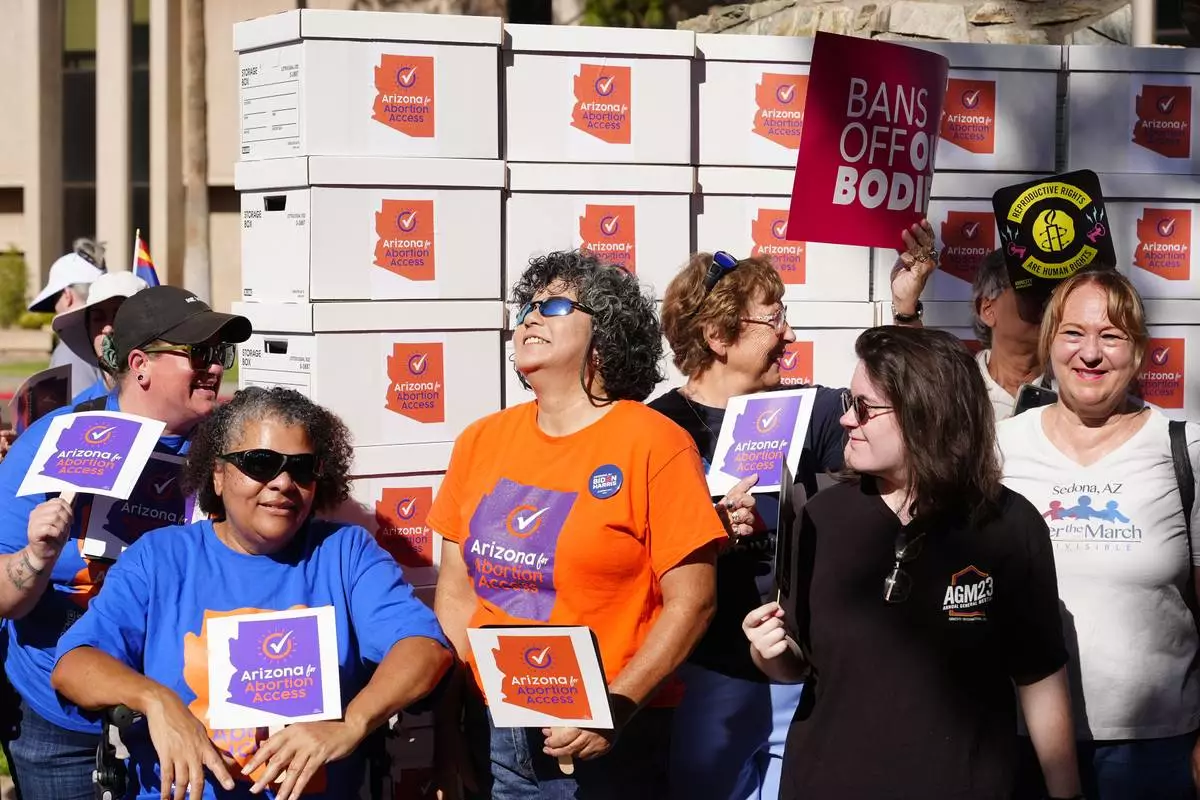
FILE - Arizona abortion-rights supporters gather for a news conference prior to delivering more than 800,000 petition signatures to the state Capitol to get abortion rights on the November general election ballot, July 3, 2024, in Phoenix. (AP Photo/Ross D. Franklin, File)
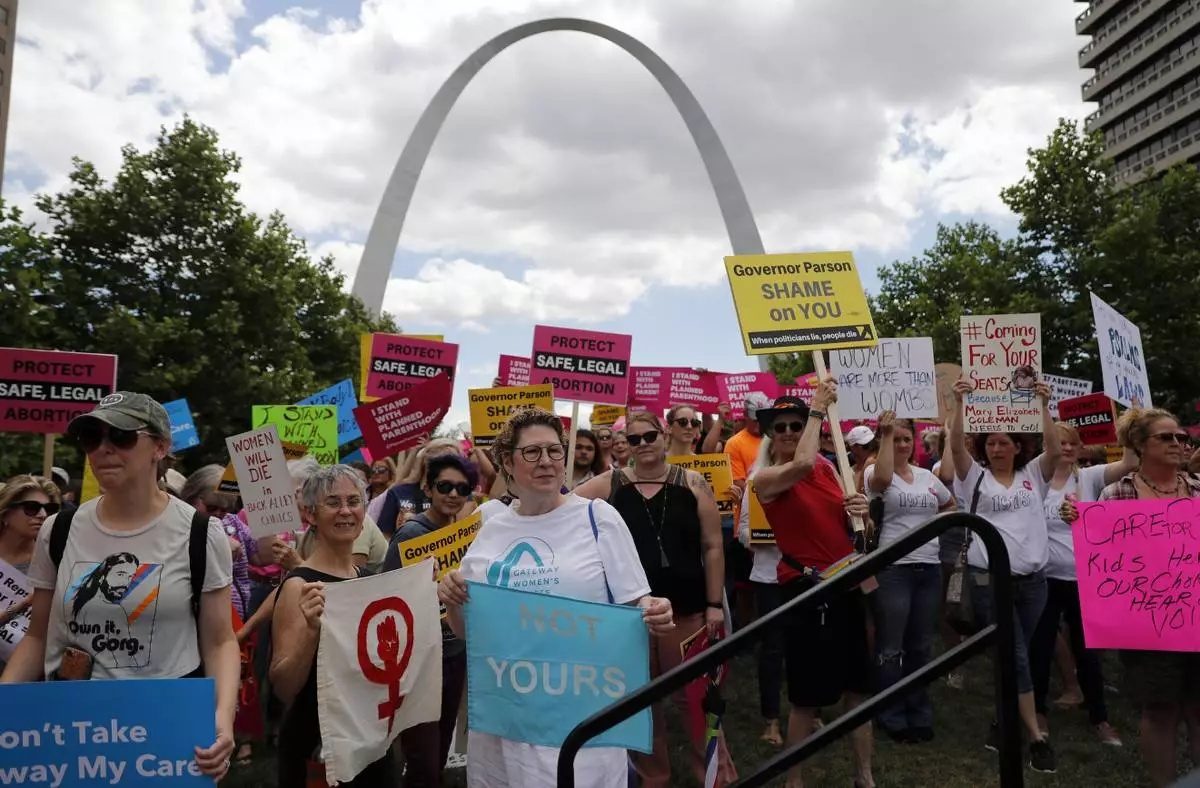
FILE - Abortion-rights supporters take part in a protest, May 30, 2019, in St. Louis. (AP Photo/Jeff Roberson, File)
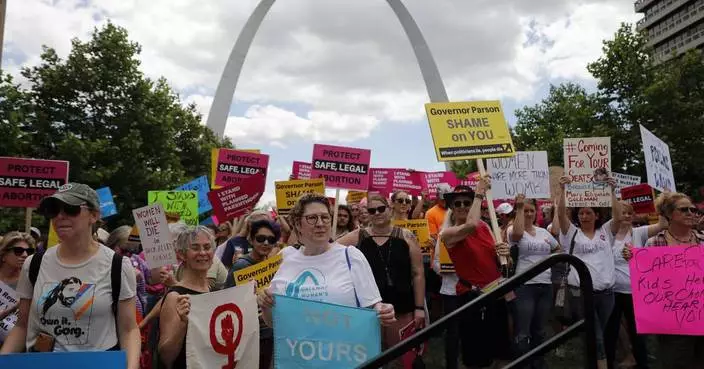
Arizona and Missouri will join 5 other states with abortion on the ballot. Who are the others?
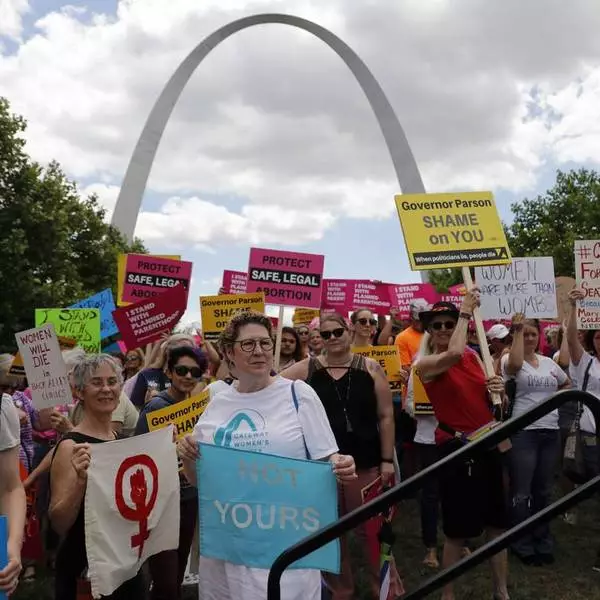
Arizona and Missouri will join 5 other states with abortion on the ballot. Who are the others?















